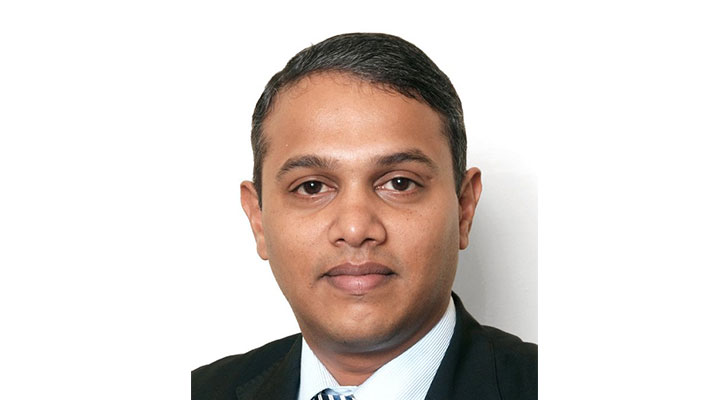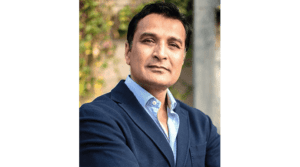We talk so much about positive engagement at workplace. As a leader of your organization, what is your thought on that?
I always tell that the most important thing in the organization is people. You can hire people, but getting the right people is the key. We are a young organization, and we have grown pretty fast in 3 years. Most important thing for us has been to have people who take ownership – only highly engaged people will take ownership. Right from the beginning I have been clear, every time you want to make a decision ask yourself – if this is your own company will you do it – if the answer is yes go ahead and do it.
Over a period of time I have realized if you empower people they will be more engaged. Organizations tend to benefit more from this approach than hiring an employee who is restricted to do certain tasks and cannot think beyond. For me, my people are not just employees, they are co-owners. We are going to be listed in a year or so, every person will have equity in our company. If company makes money you will make money too, earning opportunity is not limited to us partners. See, if I want people taking ownership, I cannot only talk about it. When we talk and show no action, people feel unsure. If your action speaks on a daily basis then people will believe you.
In a young and growing organization like yours it is important that people are focused on business targets and meeting the numbers, however it is equally important for people to continuously build their capability. How do you strike a balance where people are focused on business goals as well as engaged in terms of their own growth?
This starts with hiring itself. When you hire, hire those who fit your culture. Do not paint a picture which is ultimately a lie. Some organizations promise a lot of things to people when they hire. It can be in terms of a role, culture, or expectations. When the person joins they feel – ‘this is not at all what I thought!’ I try to be as honest and straight forward as possible. I have one interview with people before they join so that I can lay down my perspective.
I am very passionate about people. It is about understanding your organization requirements. See what kind of people you need and after they join, have continues review system in place to know what are the areas of development, what support they need to grow further.
Two years back when we were still very new, our CFO who is a CA, went for company sponsored program worth $20,000. People said it is expensive, and it is a risk at this stage. Today we are a 60 million dollar company with over 250 people. I think it is important to know where to invest to develop. Don’t get bogged down, don’t be penny wise pound foolish, by not spending that extra money to train people.
We are at a stage where we have Baby Boomers and Millennials working together and Generation Z entering shortly. Then again there are different countries and cultures people come from. How do you how do you manage these different mindsets?
Well yes, we not only have different generations but we have we have people from different countries. We are an Africa based company and we have South Africans, South African- Indians, Indian expats and we have Lebanese working with us. They all come from different culture, religious beliefs, background and they speak different languages. What overshadows all these is singular vision to make world-class tire retail in Africa. Everything we do is tied to our vision. Once everybody is aligned to what we want to do, things become easy. The pace and ways people work are very different. However, once the objective is clear, managing pace in not difficult.
As far as generation is concerned, I am impressed with the approach of young people, they think differently. They need space, independent, unlike our generation where people won’t call by first name, and say yes to everything. They are forthcoming and more confident in their ability and are transparent. We of course need wisdom of experience but wisdom beyond a certain point is unnecessary, especially because we are entering an unexplored domain. We are doing what no one in Africa has done before. So, I believe all together we strike a fine balance. In the end, the onus of setting culture lies with the top management and I take ownership for that.
While you are closely connected with the vision and intrinsically motivated, how do you manage to percolate this energy and motivation across the organization?
It is not at all easy you know, because physically we are present in 6 countries across the African continent and 1 office in Dubai. It is a challenge to communicate with people in 7 different offices, different teams, and of course 7 leadership styles and approach.
If you ask me there is no straight answer to this it’s a combination of a lot of things. This is why second-in-command team is vital. If they are connected with me and they are aligned to the vision of the company – it is not about being aligned and not happy – if they are aligned and enjoying what they are doing then it becomes easy to percolate down to the last man in the organization. But this not an easy task.
The biggest challenge is not what to communicate, but to manage these bright managers who work closely with you. Bright people come at a cost, sometimes they feel they know better than you in what you plan to do. It is good to have such conversations. It is good to agree to disagree. But once we walk out of a room after agreeing on something, we design and finalize something, we all need to throw away our differences and move forward as one team.
I have lots of friends who run 100 million, 200 million dollar companies, when I meet them, one of the biggest challenges they talk about is how to you manage the top management. If your immediate team does not align with the way you think it is a challenge!
I believe we must celebrate small wins. More and more you win people start believing in you. They see what you have been talking about is happening. Why is positive or good performance required? Because people get more aligned to the vision, they see the result, and they start seeing the big picture then. Performance management has more to it than just making money. It becomes easier to communicate how well you are doing, or in what direction you are moving.
What is your mantra to keep a growth mindset and lead your organization effectively?
Ownership. This is exactly what I tell people I interview, ‘guys if you are looking for a job this is not a place to be.’ I want owners – entrepreneurial mindset to join us. Make mistakes, but as long as you don’t repeat but learn from them, I am willing to sacrifice that amount of loss in revenue, because I want innovative, learning organization. This can happen only when people are allowed to do what they think is best for the company. Of course there is broad framework on what are the dos and don’ts, that talks about integrity.
Hire people as co-owners, at least the top 40-50 managers in the company should feel they are running their own company. I promise you when people come to me for advice, I make them think, I ask them questions, I never talk about my decisions, then it becomes only my decision. It is important for organizations to have managers who have ownership. Very difficult but that’s the difference between winning organizations and not so great companies. If every manager at every level not only has ownership but the power to do what they think should be done, it cuts bureaucracy and the response time to market is very quick. I think that’s a big win for the organization, people who made it happen and good for everybody.
Thank you Govind for your insights and time!






